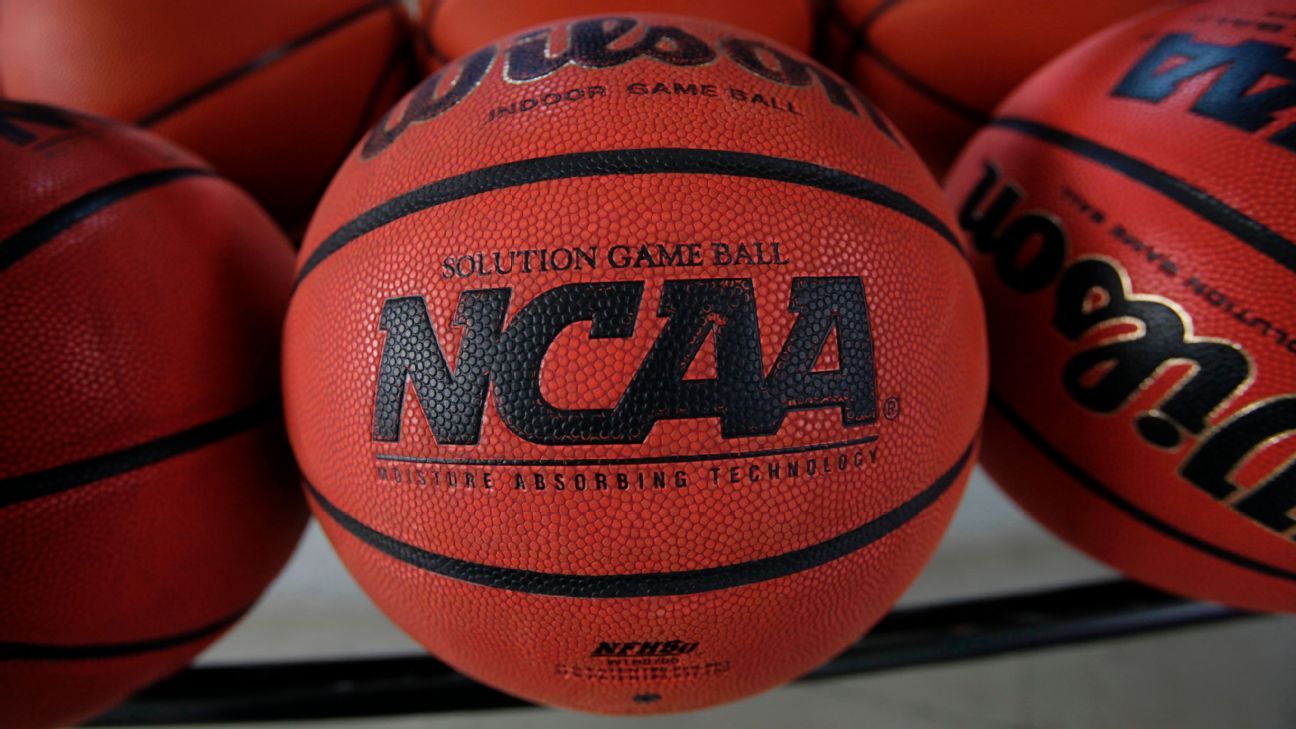BOSTON — Dartmouth College lawyers argued Thursday that the Ivy League school’s basketball players should not be considered employees because they are unpaid members of a money-losing program whose need-based scholarships don’t depend on their participation or talent.
In a National Labor Relations Board hearing to determine whether the team should be allowed to unionize, school attorney Joe McConnell said that the classification of the players as “student-athletes” — whatever its merits for big-money college teams elsewhere — is actually appropriate at Dartmouth.
“Dartmouth’s paramount commitment is to the academic and personal growth of all students, including students who participate in varsity athletic activities,” he said in the Zoom hearing. “At Dartmouth, students’ primary objective is learning, and Dartmouth has adopted policies reflecting that students who participate in intercollegiate athletics are students first and athletes second, and that class attendance takes precedence over participation in athletics.”
For decades, the NCAA and its member schools have insisted that college athletes are regular students who choose to play sports and thus should not be paid anything other than scholarship; a labyrinthine set of rules has evolved to prevent players from receiving almost any benefit not available to the general student body.
Thanks to this unpaid labor, college football and basketball have grown into billion-dollar industries.
But that model has begun to crumble, most significantly with a 2021 Supreme Court ruling that opened college sports up to additional — though still limited — kinds of pay. Addressing the claim that paying players would destroy college sports, Justice Brett Kavanaugh said, “Nowhere else in America can businesses get away with agreeing not to pay their workers a fair market rate on a theory that their product is defined by not paying their workers a fair market rate.”
In response, the NCAA adopted rules that permitted players to profit from their name, image and likeness, allowing a few of the highest-profile stars to earn millions. Some college football power brokers have conceded that sharing revenue with players is inevitable.
But things are different in the Ivy League, the collection of eight elite academic Northeastern schools that do not offer athletic scholarships. Instead, schools like Dartmouth offer “need-based” financial aid to all students to cover the gap between the cost of attendance and a prospective student’s ability to pay.
Eleven of the Dartmouth players receive aid and four do not, the New Hampshire school said — without regard to their roles on the team.
“There’s no thumb on the scale for student-athletes,” McConnell said.
Most significantly, Dartmouth’s basketball program loses money, according to documents introduced during the hearing.
“The college does not profit from the activities of the men’s basketball program,” McConnell said. “Unlike athletic programs in other colleges — universities that deliberately pursue and generate net revenue and profits for their institutions through their athletics — the men’s basketball program and the athletic program overall at Dartmouth does not produce any of that revenue for Dartmouth and instead represents an expense that Dartmouth assumes as part of its ongoing participation in the Ivy League.”
All 15 members of the Dartmouth men’s basketball team signed a petition last month asking to join Local 560 of the Service Employees International Union, which already represents some other employees at the school. Unionizing would allow them to negotiate not only over salary but working conditions, including practice hours and travel.
The school has objected, saying the players are not employees. In the pre-election hearing, which began Thursday and is expected to continue at least into next week, Dartmouth noted that previous attempts by athletes to unionize — most notably the Northwestern University football team — have all been rejected.
“The factors the board considered in Northwestern are even more significantly present at Dartmouth, given its own ethos and the ethos and requirements of its participation in the Ivy League Athletic Conference,” McConnell said.
In 2014, an NLRB regional director in Chicago ruled that Northwestern football players were employees despite the school’s arguments that they were students first. However, the unionization effort was scuttled by a board ruling that differing labor rules for public and private schools would unsettle the labor market in the Big Ten Conference, which includes both. (All eight Ivy League schools are private.)
The NLRB decision left open the issue of whether the athletes are employees. But in a 2021 memo, the board’s top lawyer said that athletes should be considered employees and even the term “student-athlete” was designed to mislead players about their rights.
“The freedom to engage in far-reaching and lucrative business enterprises makes players at academic institutions much more similar to professional athletes who are employed by a team to play a sport,” NLRB General Counsel Jennifer Abruzzo wrote.
But while testimony in the Northwestern case showed that the football program was indeed lucrative — making $76 million over the 10 years ending in 2012 — Dartmouth says it subsidizes its basketball program. According to testimony on Thursday, the school lost $855,000 on total expenses of $1.31 million in 2023, bringing in only $26,000 in ticket sales.
And while players at major colleges can spend 50 or 60 hours a week on their sport, the official limit in the Ivies is 20 hours, with fewer games in a season and less travel. While athletic scholarships at other schools can be contingent on an athlete’s playing status, need-based awards in the Ivies are not.
Union attorney John Krupski noted that Dartmouth’s financial figures did not include general donations to the school that may have been generated by the basketball team. The school also did not include revenue from an all-sports broadcasting contract or its share of NCAA basketball tournament revenue.
